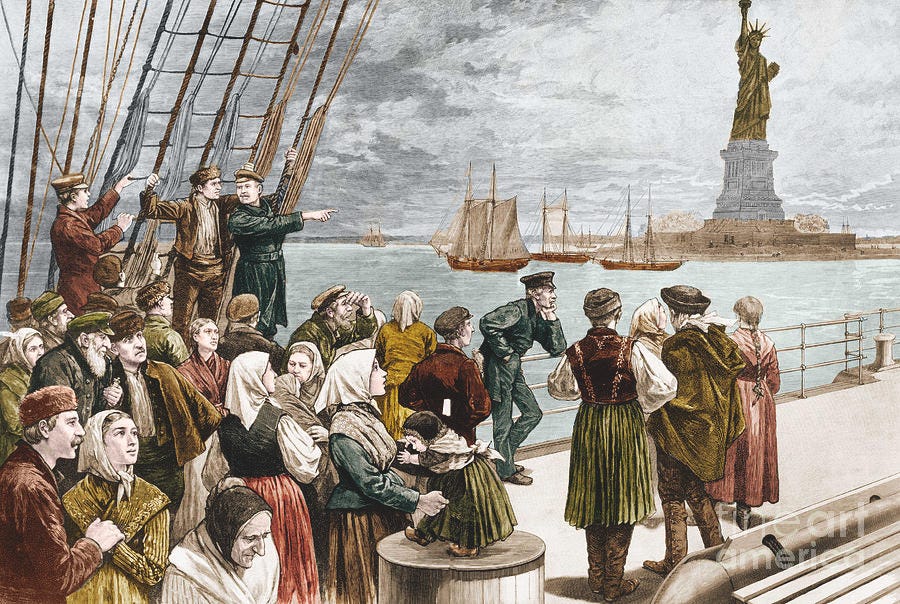Why the German-American Dream will survive Trump
In the autumn of 2023, I travelled to the US for the first time in my life. The trip was limited to Washington, D.C., where I’d been invited to give a talk, and I was only there for a week, but it left an impression on me all the same.
It was a strange experience. Everything was very different, yet everything looked familiar. School buses were yellow. The doors of public toilet cubicles were mere fig leaves of privacy. Strangely small, they left so much space at the top, the bottom and the side that you could see people washing their hands from the comfort of your toilet seat. Exit signs all used the same tall and narrow font.
I’d never been to America before, and yet I’d seen it before – in cinemas and on television. As is the case for most other people in Germany and Europe, I grew up with a huge chunk of my screentime spent looking at American settings: from Hollywood movies to Alf, the A-Team and Columbo. At school, quotes from The Simpsons and South Park were ubiquitous, not least because the teachers had no idea what was going on when someone shouted ‘Oh my God, they killed Kenny!’
Actually going to the US was like stepping into a movie set. While I was there, people from Germany texted me to tell me to try out or look at specific things. ‘Go to that place from Forrest Gump with the large, shallow pool,’ was one such request (meaning the Lincoln Memorial Reflecting Pool). ‘Go and see if the White House is really as small as they say,’ was another (it was – depending on how you measure, it’s between four and ten times smaller than the chancellery in Berlin – which is in the process of being made a lot bigger!). There was more, from ‘eat in a diner with red seats’ to ‘how far are you from Disneyland?’ One way or another, German friends and family were very excited. It was like the whole of the US was a sight to be seen, and I was there to look at it all.
I know, plenty of people around the world are either in awe of or appalled by America, but there is a uniquely German fascination with the US, too. For decades in the 19th century, Germans were the largest group of immigrants in America. But even many of those who stayed in Europe fantasised about it. The author Karl May had never been to the US when he wrote his adventure novels about the ‘Wild West’ in the late 19th century, which made him one of the most successful German authors of all time. I still grew up with his stories in books, films and audio cassettes, a century after he wrote them.
Yet now, German commentators fear that several centuries of German-American dreaming are coming to an end. President Donald Trump’s second term in office is a rude awakening, they say, tainting the illusions of millions of transatlantists in Germany. I’m not convinced. I don’t think the German-American dream was ever about politics, so politics won’t destroy it either.
Keep reading with a 7-day free trial
Subscribe to ZEITGEIST to keep reading this post and get 7 days of free access to the full post archives.


